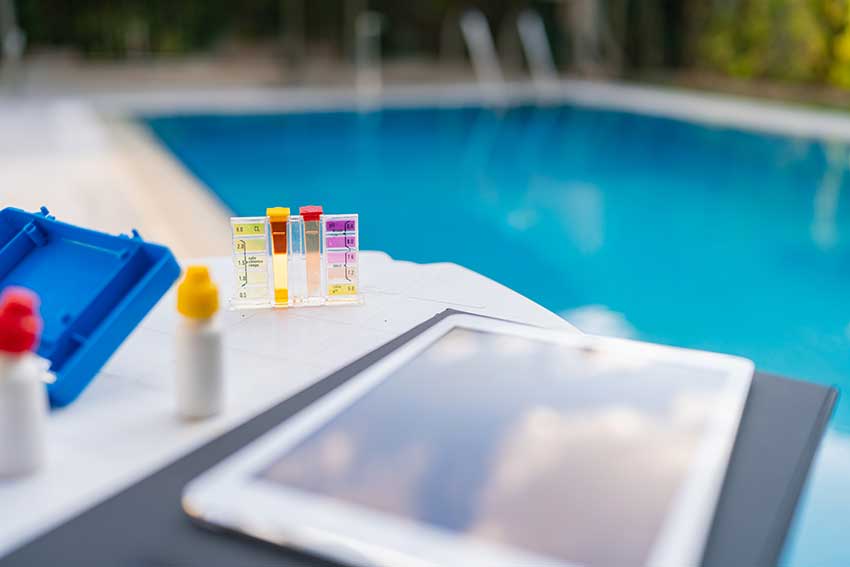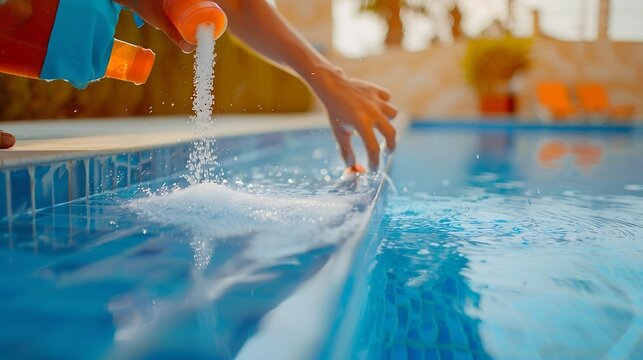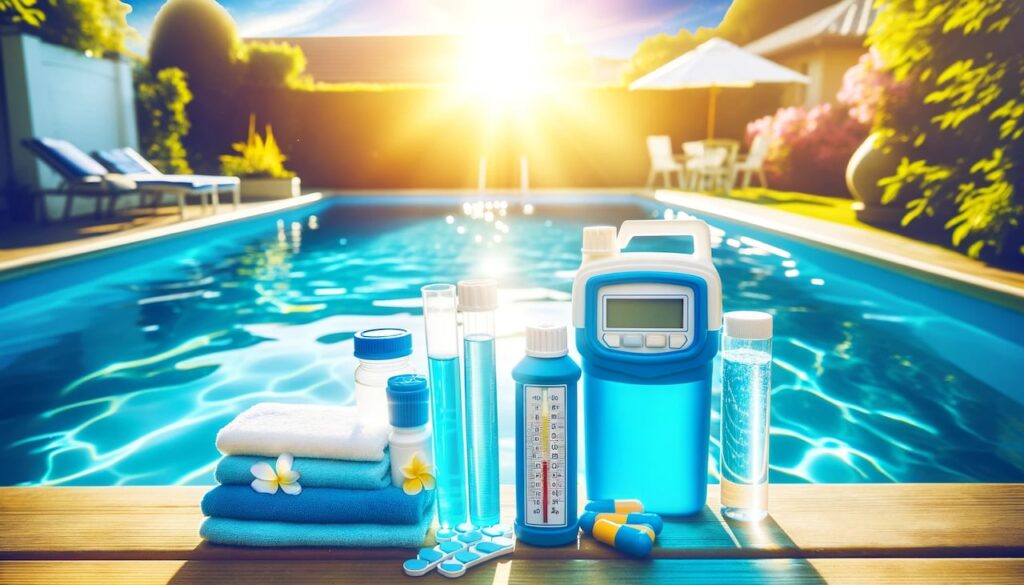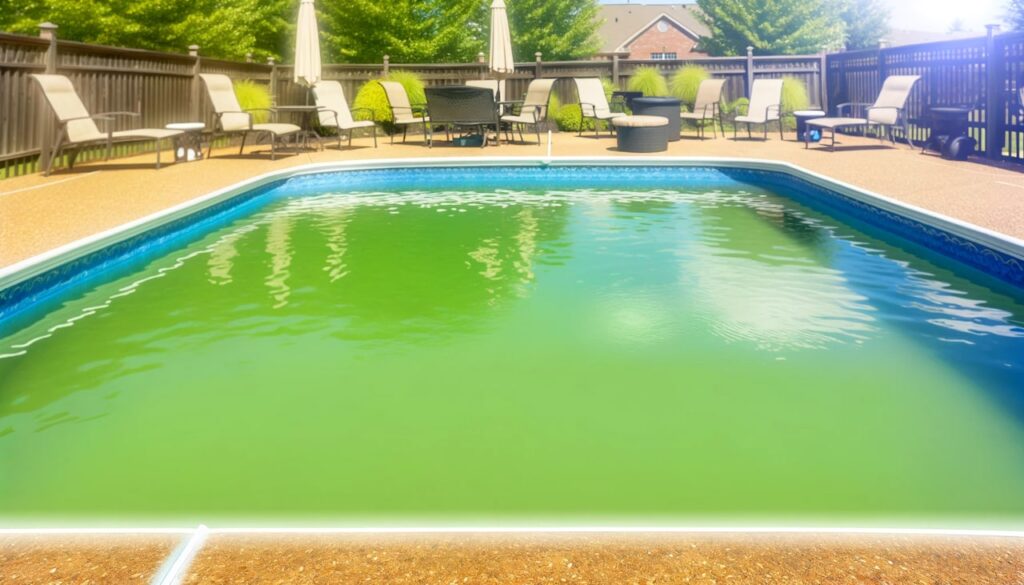Saltwater swimming pools are an excellent alternative to traditional chlorine pools, offering a more natural swimming experience with fewer harsh chemicals. However, like any pool, they require regular maintenance to keep the water clean, balanced, and safe for use. Whether you’re a new saltwater pool owner or looking to refine your care routine, this blog will provide practical tips for how to maintain a saltwater swimming pool.
Must Read: Best Way to Chlorinate a Pool
Tips for How to Maintain a Saltwater Swimming Pool
Regularly Test and Balance the Water Chemistry
- Salt Levels: Ensure the salt level is between 2,700 and 3,400 ppm (parts per million), as recommended by your pool builder.
- pH Levels: Keep the pH level in the ideal range of 7.4 to 7.6 to avoid scaling and cloudy water.
- Chlorine Levels: Even in saltwater pools, chlorine levels must be monitored and maintained at 1-3 ppm.
Inspect the Salt Chlorine Generator
- Check the generator cell regularly for calcium buildup or debris. Clean it as needed to ensure efficient chlorine production.
Clean the Pool Filter
- A clean filter is crucial for effective circulation and removing impurities. Depending on the filter type, clean or replace it according to the manufacturer’s guidelines.
Skim and Brush the Pool Surface
- Skim leaves, bugs, and debris from the water’s surface daily. Brush the pool walls weekly to prevent algae and scaling.
Shock the Pool Periodically
- Occasionally shocking your pool helps eliminate contaminants and keeps the water crystal clear. Use a pool-safe shock product designed for saltwater systems.
Other Things to Keep in Mind When Cleaning a Saltwater Pool
- Monitor for Scaling and Corrosion
Saltwater can lead to scaling on pool surfaces and equipment. Regularly inspect for buildup and address it with appropriate cleaning solutions.
- Pay Attention to Pool Equipment
Saltwater can corrode certain types of metal and materials. Use pool equipment designed for saltwater systems to minimize wear and tear.
- Handle Extreme Weather Conditions
Heavy rain or high temperatures can disrupt the pool’s chemical balance. Test and adjust the water chemistry promptly after such events.
- Winterize Your Pool
If you live in a colder climate, take steps to winterize your pool to protect it from freezing temperatures. Lower the water level, add a pool cover, and turn off equipment.
Need Help Cleaning and Maintaining Your Saltwater Pool?

Maintaining a saltwater pool can feel overwhelming, especially if you’re new to it. Professional pool maintenance services can help ease the burden by providing expert care, routine cleaning, and equipment checks. Whether you need one-time assistance or ongoing support, pool specialists can keep your saltwater pool in top condition year-round.
Conclusion
Caring for a saltwater swimming pool doesn’t have to be daunting. With regular maintenance, attention to water chemistry, and a bit of care for your equipment, you can enjoy the benefits of a clean and healthy pool. If you’re unsure about tackling the upkeep yourself, don’t hesitate to reach out to pool contractors near you for help. With the right approach, your saltwater pool will provide endless enjoyment and relaxation for years to come.
Ready to dive into effortless pool maintenance? Contact us today to learn more about our saltwater pool cleaning and care services!



